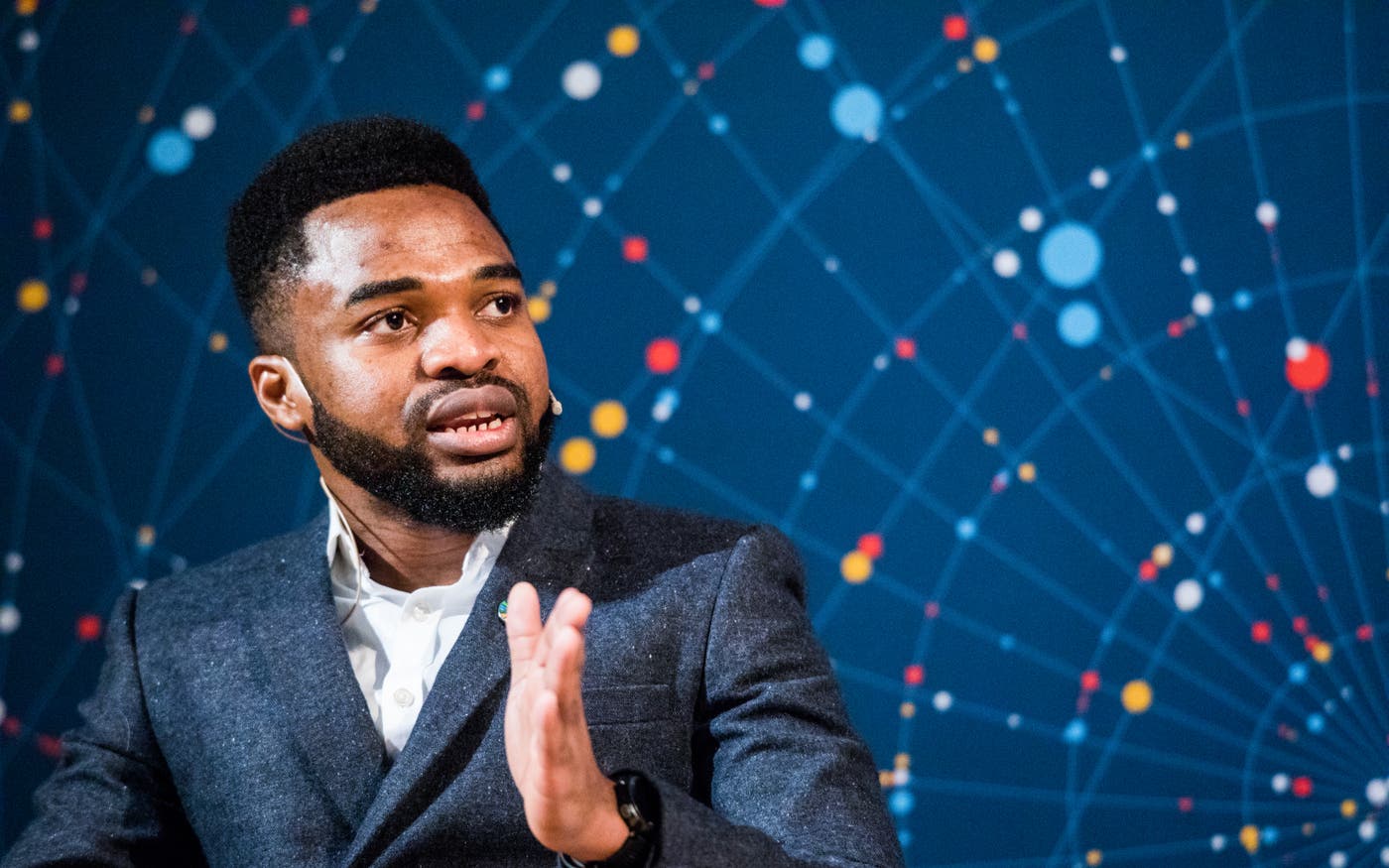
Tipping point
Finding my voice in the fight against malaria
Meet a young Nigerian who has battled malaria as a patient, a doctor, and now as a Goalkeeper.

Dr. Elvis Eze, 28, grew up in Nigeria battling malaria both as a patient and as a physician working in a Lagos hospital. He now serves as a Youth Ambassador for Malaria No More UK, helping to mobilize funding and support to bring an end to malaria in his lifetime. Eliminating malaria is one of the Global Goals that will be discussed at this year’s Goalkeepers event. I had the privilege of meeting Dr. Eze at last year’s Malaria Summit in London. I invited Dr. Eze to share his inspiring story as one example of the many dedicated people in the world who are helping the world achieve the Global Goals. – Bill Gates
I remember growing up in Nigeria with fond nostalgia. I lived with my parents and four siblings in a middle-class Lagos neighborhood. Our days were filled with street football, video games, and card games.
What was there not to love?
Looking back, there was one thing that frightened all of us: malaria.
The mosquito-borne disease was always striking someone close to me, or sometimes even me. The fatigue, muscle aches, burning fever, and the lost play days and school days were my biggest worry as a child.
I still wonder about my childhood friend, Lukman, who was ill with malaria one day and never came back to our school. Were his parents forced to pull him from our school because of his mounting medical bills? Or, was he one of the tens of thousands of young children who lose their lives to malaria in Nigeria every year?
My experience with malaria is hardly unique. Worldwide, there are about 200 million cases recorded every year. The World Health Organization estimates that a child dies from malaria every two minutes. Nigeria alone accounts for 25 percent of the world’s malaria cases. In fact, the disease is such a regular occurrence in my country that people speak about it the same way the weather is talked about in London or the flu in the winter months. It is just an accepted part of life—and for many, an accepted cause of death.
It wasn’t until years later, when I became a doctor, that I realized that none of us needed to accept malaria as a matter of fate. We could do much more to fight it.
In 2014, I was working as a junior doctor in the emergency room in Lagos, where we regularly treated children suffering from malaria. One night, the hospital was overcrowded mostly with malaria cases. I can still remember seeing the children going through bouts of seizures, losing consciousness, and, at times, dying. I also recall the helplessness on the faces of their parents as they lived out their worst nightmare.
This was my tipping point. At the end of this one painfully long night shift, my mind was clouded with anger, sorrow, and loss. And yet, at that moment, I was thinking clearly about one thing: I needed to take action against malaria.
There was no reason for children to be experiencing the suffering I was witnessing in the emergency room. Malaria is a preventable and treatable disease. I had experienced firsthand how it was possible to administer life-saving treatments to children and give them their childhood back. Still, malaria is killing 435,000 people worldwide every year, most of them children. As a doctor, I knew I could continue to treat malaria patients in my care and advise families how to use bed nets and other prevention techniques. But I also wanted to use my voice to raise awareness of the disease and mobilize more resources in the global fight against it.
That opportunity came in 2015, when I was invited to the United Kingdom to work as a health officer for the Commonwealth Secretariat. I helped establish the Commonwealth Youth Health Network, a platform for young people to advocate and engage on health-related global issues, including the Global Goals. As a member of the network, I learned how Sri Lanka, which was one of the most malaria-infested countries in the world, had been able to eliminate the disease in 2016. Sri Lanka’s achievement was a powerful reminder that progress against malaria is possible.
In 2018, I participated in the Malaria Summit in London, where I shared my story and joined the call for heads of government to end malaria. All 53 countries of the Commonwealth made the bold commitment to halve malaria in their countries by 2023, which would prevent 350 million malaria cases and save 650,000 lives.
One lesson I’ve learned from my experience is how my voice could be a powerful tool to influence change in the fight against malaria. And your voice can be, too. I’d like to invite you to speak up as part of the Malaria Must Die campaign and record your voice for the world’s first voice petition to end malaria. Our goal is to help the Global Fund to Fight AIDS, Tuberculosis and Malaria, which finances over half of all malaria efforts worldwide, get fully funded for its vital work.
When I became a doctor, I took the Hippocratic oath, like all doctors before me. It’s an oath I think about often as I seek to provide all my patients with the highest quality of life possible. I’ll be reminded of this oath again this week when I attend this year’s Goalkeepers event, which will focus on efforts to accelerate progress on the Global Goals. Much like my oath as a doctor, the Global Goals are a promise by the world to save and improve the lives of our fellow citizens of the world. With your help, I know it will be a promise the world can keep.


